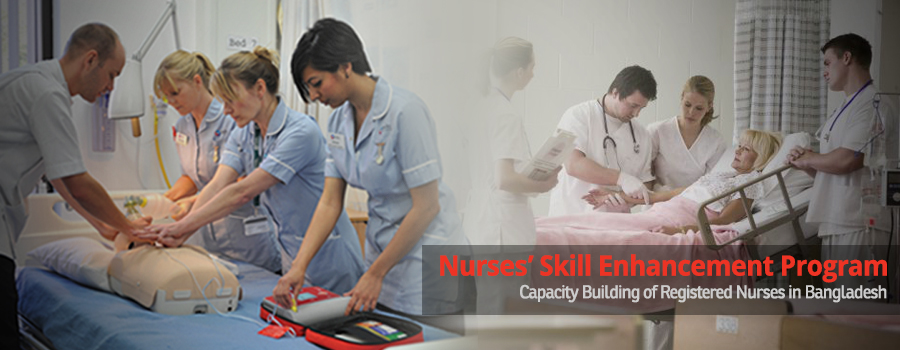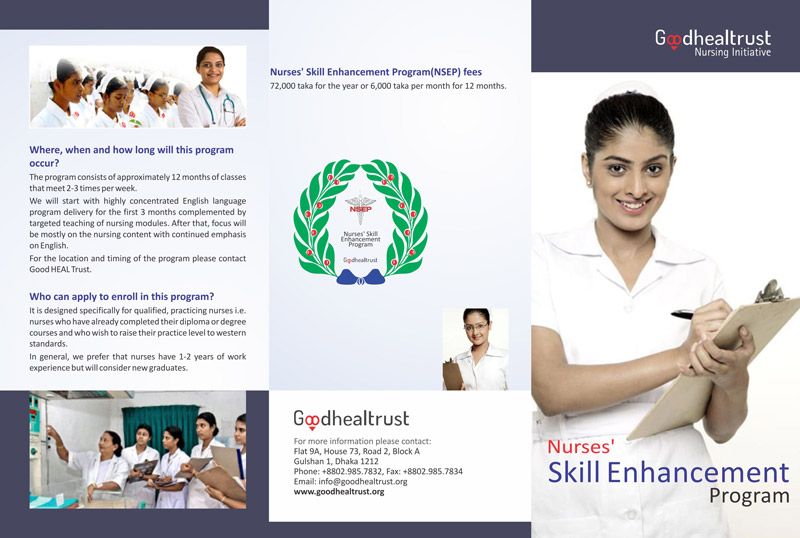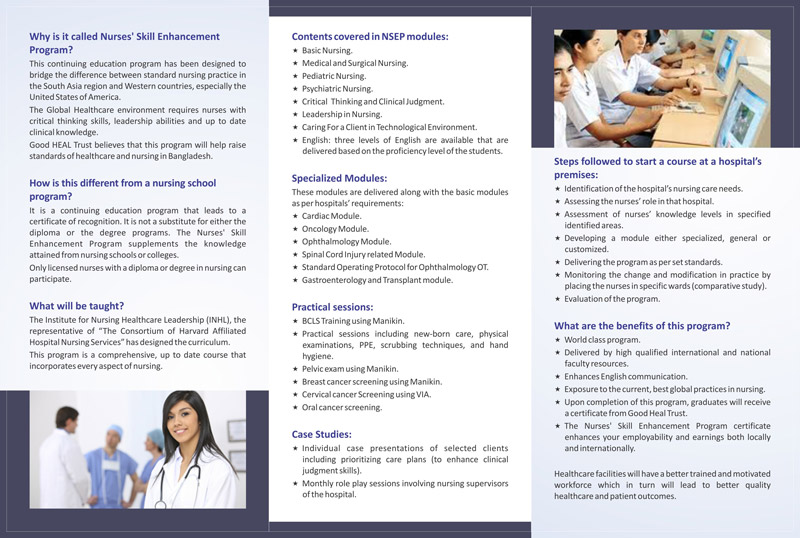OVERVIEW – Capacity Building of Registered Nurses in Bangladesh
The quality of any health care service is only as good as its practitioners. For any health system, health workers are the most critical driving force. They are the ultimate resource for promoting health, preventing disease, and curing sickness. Human Resources for Health (HRH), the backbone of the health care delivery system, is in a crisis situation in Bangladesh with a critical shortage of health workers, although health workers command three-fourths of the national health budget. Worker numbers and quality are positively associated with gains in health. The density of workers in a population is closely associated with some of the key health MDG indicators.
Bangladesh faces a shortage of 280,000 trained nurses, which is a major obstacle towards achieving its MDG targets, as well as national health goals outlined under the 2011-2016 Health, Population and Nutrition Sector Development Program (HPNSDP)and the 2008Bangladesh Health Workforce Strategy. In other words, a tenfold increase of the current size of the nursing workforce is needed!
ACTIVITY – Nurses’ Skill Enhancement Program (NSEP)
Good HEAL Trust aims to implement the successful Nurses’ Skill EnhancementProgram (NSEP), a one-year, world-class continuing education program for nurses designed by the Institute for Nursing Healthcare Leadership (INHL), a U.S.-based non-profit organization for nursing professional development activities in a consortium of six Harvard Medical School-affiliated hospitals, and is conducted by foreign faculty from India, USA, Canada and Europe.
The program aims to enable existing nurses in Bangladesh attain globally competitive standards through improved clinical knowledge, exposure to latest innovations, development of critical thinking ability, and evidence-based nursing practice. English modules, designed for different proficiency levels, enable nurses to improve their skills in English communication to better grasp and participate in NSEP classes conducted in English. Nurses are also provided lessons on the use of Computers and the Internet.
Prior to enrolling, nurses of a partnering hospital are engaged in an assessment test, both written and oral, to benchmark their knowledge base, language proficiency, and communication skill. NSEP curriculum is customized to the needs of participating nurses at the partner hospital. Structured class quizzes are conducted complemented by monthly tests. At the end of program, nurses appear for a comprehensive final certification exam for NSEP.
The program addresses key issues with the quality of registered nurses practicing in both the public and private hospitals across Bangladesh, as acknowledged by GoB’sHealth, Population, and Nutrition Sector Development Program (HPNSDP) and also identified as a quick-win opportunity to strengthen the capacity of nurses for immediate, affordable improvements to health outcomes.
Good HEAL Trust implements this initiative by targeting and engaging in a long-term strategic partnership with reputed not-for-profit private-sector Hospitals in Bangladesh in order to most appropriately and cost-effectively improve the quality of care in the private sector, subsequently leading to more positive health outcomes across the health system.
List of 10 Hospitals interested to enroll Nurses in NSEP:
|
Name of Hospital |
Total Number of Nurses |
Yearly intake in NSEP course |
|
BIRDEM-1 |
400 |
25 |
|
BIRDEM-2 |
100 |
25 |
|
Bangladesh Institute of Health Science |
200 |
25 |
|
ShahidKhaleque-Ibrahim General Hospital |
100 |
25 |
|
IspahaniIslamia Eye Hospital |
150 |
25 |
|
National Heart Foundation |
300 |
25 |
|
National Heart Foundation, Sylhet |
100 |
25 |
|
Ahsania Mission Cancer Hospital |
150 |
25 |
|
Delta Cancer Hospital |
200 |
25 |
|
Chattagram Ma O Shishu Hospital |
200 |
50 |


